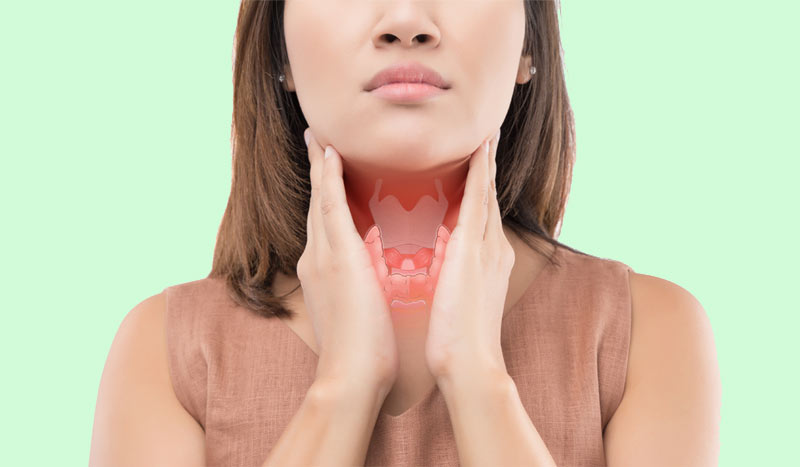THYROID DISEASE

THYROID DISEASE
Primary care service
Services available:
Proper diagnosis, medical treatment, medication education, disease Education, home physical therapy education, Referral as needed
F.A.Q.
The thyroid gland is a butterfly-shaped organ that is a part of the body’s endocrine system, the system that controls hormone production and distribution. It’s a small gland that sits in front of the neck and regulates the hormones T3 and T4, which control weight; energy levels; body temperature; and skin, hair, and nail growth, among other things. They also help regulate your heartbeat, breathing and metabolism (the speed at which you gain or lose weight).
The thyroid gland is located at the base of your neck in front of your trachea (or windpipe). The thyroid gland makes, stores, and releases two hormones—T4 (thyroxine) and T3 (triiodothyronine). Certain disorders can cause the thyroid gland to make too much or too little hormone. Women at risk of thyroid disease include those who have or have had an autoimmune disorder (such as diabetes mellitus).
Thyroid hormones control your metabolism, which is the rate at which every part of your body works. When your thyroid gland is working the way it should, your metabolism stays at a steady pace—not too fast or not too slow.
Thyroid disease is diagnosed by your symptoms, an exam, and tests. Your health care practitioner will examine your neck while you swallow. The thyroid gland moves when you swallow. This makes it easier for your health care practitioner to feel. Your health care practitioner also may examine your skin and eyes and check your weight and temperature.
Hypothyroidism occurs when the thyroid gland does not make enough of the thyroid hormones to maintain your normal body metabolism.
The most common cause of hypothyroidism is a disorder known as thyroiditis—an inflammation of the thyroid gland. The most common type of thyroiditis is called Hashimoto disease, which causes an enlarged thyroid (also called a goiter). Hypothyroidism also can result from a diet that does not have enough iodine, but this type of hypothyroidism is rare in the United States.
Symptoms of Hypothyroidism:
The symptoms of hypothyroidism are slow to develop. Common symptoms of hypothyroidism include:
- fatigue or weakness
- weight gain
- decreased appetite
- change in menstrual periods
- loss of sex drive
- feeling cold when others do not
- constipation
- muscle aches
- puffiness around the eyes
- brittle nails
- hair loss
Treatment:
In most cases, hypothyroidism is treated with medication that contains thyroid hormone. The dosage of the medication is increased slowly until a normal level of thyroid hormone has been reached in the blood.
Hyperthyroidism results when the thyroid gland makes too much thyroid hormone. This causes your metabolism to speed up.
Causes of Hyperthyroidism:
The most common cause of hyperthyroidism is a disorder known as Graves disease. It most often affects women between the ages of 20 and 40. A late sign of Graves disease is often a wide-eyed stare or bulging eyes.
Hyperthyroidism also may result from medication. Taking too much thyroid hormone when being treated for hypothyroidism can lead to symptoms of an overactive thyroid. Lumps in the thyroid called hot nodules are another cause. These lumps produce excess thyroid hormone.
Symptoms of Hyperthyroidism:
Common symptoms of hyperthyroidism include:
- fatigue
- weight loss
- nervousness
- rapid heart beat
- increased sweating
- feeling hot when others do not
- changes in menstrual periods
- more frequent bowel movements
- tremors
Treatment:
Anti-thyroid medication can be used to reduce the amount of thyroid hormone your body is making. Medications called beta-blockers can control rapid heart beat.
If these medications do not help, your health care practitioner may suggest treatment with high-dose radioactive iodine to destroy parts of the thyroid gland. In some cases, surgery may be needed to remove the thyroid gland.
Source: https://www.acog.org/
